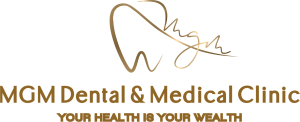Oral Surgery
At our clinic, we provide a full range of oral surgery services to help address complex dental and jaw issues that require specialized care. Whether you need wisdom teeth removal, corrective jaw surgery, or treatment for oral infections, our skilled oral surgeons are here to ensure your comfort and restore your oral health with precision and care.
What is Oral Surgery?
Oral surgery refers to any surgical procedure performed on the teeth, gums, jaw, or surrounding soft tissues to treat conditions that cannot be addressed with conventional dental treatments. These surgeries are often necessary to address severe oral health issues that affect the functionality, appearance, and overall health of your mouth.
Types of Oral Surgery We Offer
-
Wisdom Teeth Removal
Wisdom teeth, also known as third molars, often need to be extracted if they are impacted or causing pain, infection, or crowding. Removing wisdom teeth is one of the most common oral surgeries and can help prevent long-term dental complications. -
Dental Implants
For patients missing one or more teeth, dental implants offer a permanent, natural-looking solution. The procedure involves placing a titanium post into the jawbone, which serves as the foundation for a crown, bridge, or denture. Dental implants provide strength, stability, and improved function compared to traditional dentures. -
Tooth Extractions
In some cases, when a tooth is severely decayed, damaged, or infected, it may need to be extracted. Our oral surgeons perform extractions with care and ensure proper healing to avoid future complications. -
Corrective Jaw Surgery
Corrective jaw surgery (orthognathic surgery) is performed to address issues related to the alignment of the upper and lower jaw. This can help improve both function and appearance for individuals with conditions such as a misaligned bite, jaw deformities, or difficulty chewing and speaking. -
Treatment of Oral Infections
Severe oral infections that affect the gums, teeth, or jawbone may require surgical intervention. This can include abscess drainage, removal of infected tissue, or surgery to treat advanced gum disease (periodontitis). -
TMJ Surgery
For patients suffering from temporomandibular joint (TMJ) disorders that don’t respond to other treatments, surgery may be necessary to alleviate pain, improve jaw movement, and restore function.
What to Expect During Oral Surgery
Before your procedure, we will thoroughly discuss your treatment plan, explain the necessary steps, and address any questions or concerns you may have. We offer sedation options to ensure your comfort throughout the procedure, whether it’s local anesthesia, oral sedation, or general anesthesia.
Post-surgery, our team will provide you with detailed aftercare instructions to promote proper healing and reduce discomfort. It’s important to follow these instructions carefully to ensure the best possible outcome.
Why Choose Us for Oral Surgery?
-
Experienced Surgeons: Our team of oral surgeons has years of experience performing a wide variety of procedures with precision and care.
-
Advanced Technology: We use the latest technology, such as digital X-rays and 3D imaging, to plan and execute procedures with the highest level of accuracy.
-
Comfort-Focused Care: We understand that oral surgery can be a daunting experience, and we strive to make your procedure as comfortable as possible. We offer personalized care to ensure that you feel at ease every step of the way.
-
Comprehensive Support: From consultation to recovery, our team will guide you through the entire process, ensuring that you are well-informed and supported.
Frequently Asked Questions
The type of anesthesia used during oral surgery depends on the procedure and your comfort level. We offer several sedation options, including local anesthesia (numbing the area), oral sedation (medication to help you relax), and general anesthesia (where you are fully asleep during the procedure). Our team will discuss the best option for you based on the complexity of your surgery and any medical considerations.
Recovery time varies depending on the procedure performed and your individual healing process. For minor surgeries, like tooth extractions or wisdom teeth removal, recovery may take a few days to a week. More complex surgeries, such as jaw surgery or dental implants, may require several weeks for full recovery. Your oral surgeon will provide detailed aftercare instructions and follow-up appointments to ensure proper healing.
We Can Help You
Have questions or ready to schedule your appointment? Our team is here to help! Reach out to us today – we’re excited to assist you in achieving your best smile.


